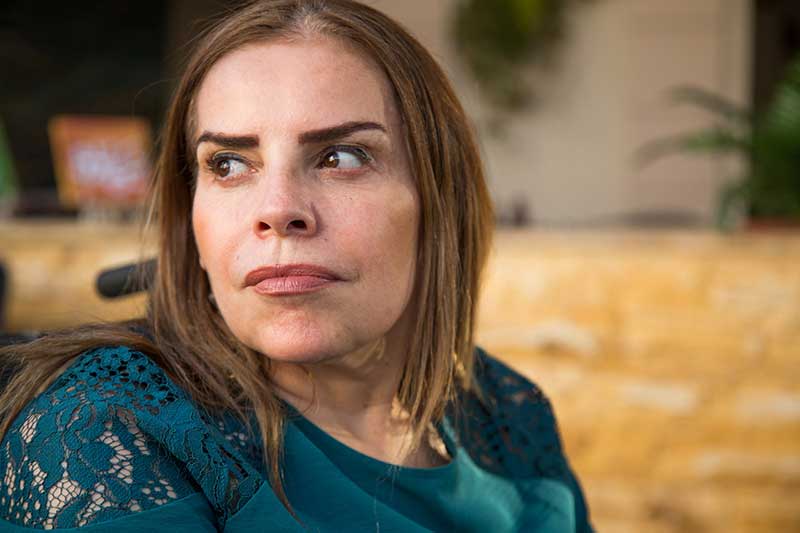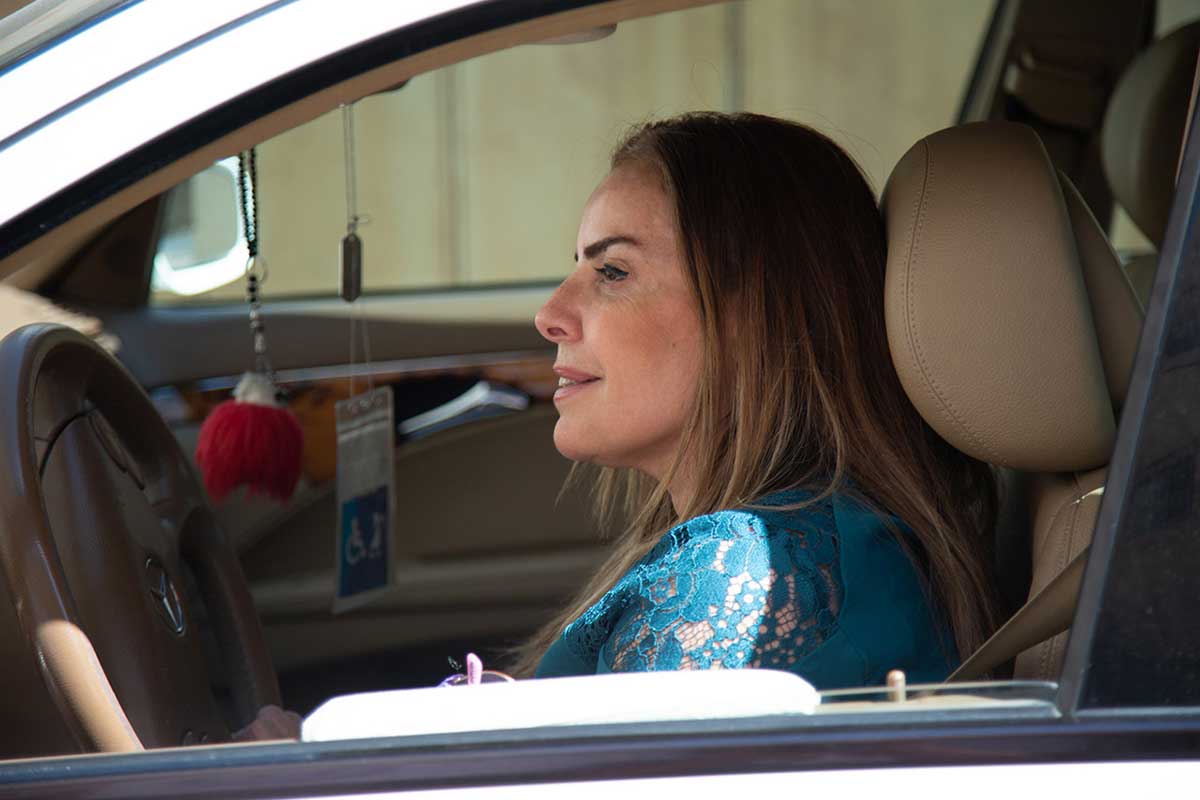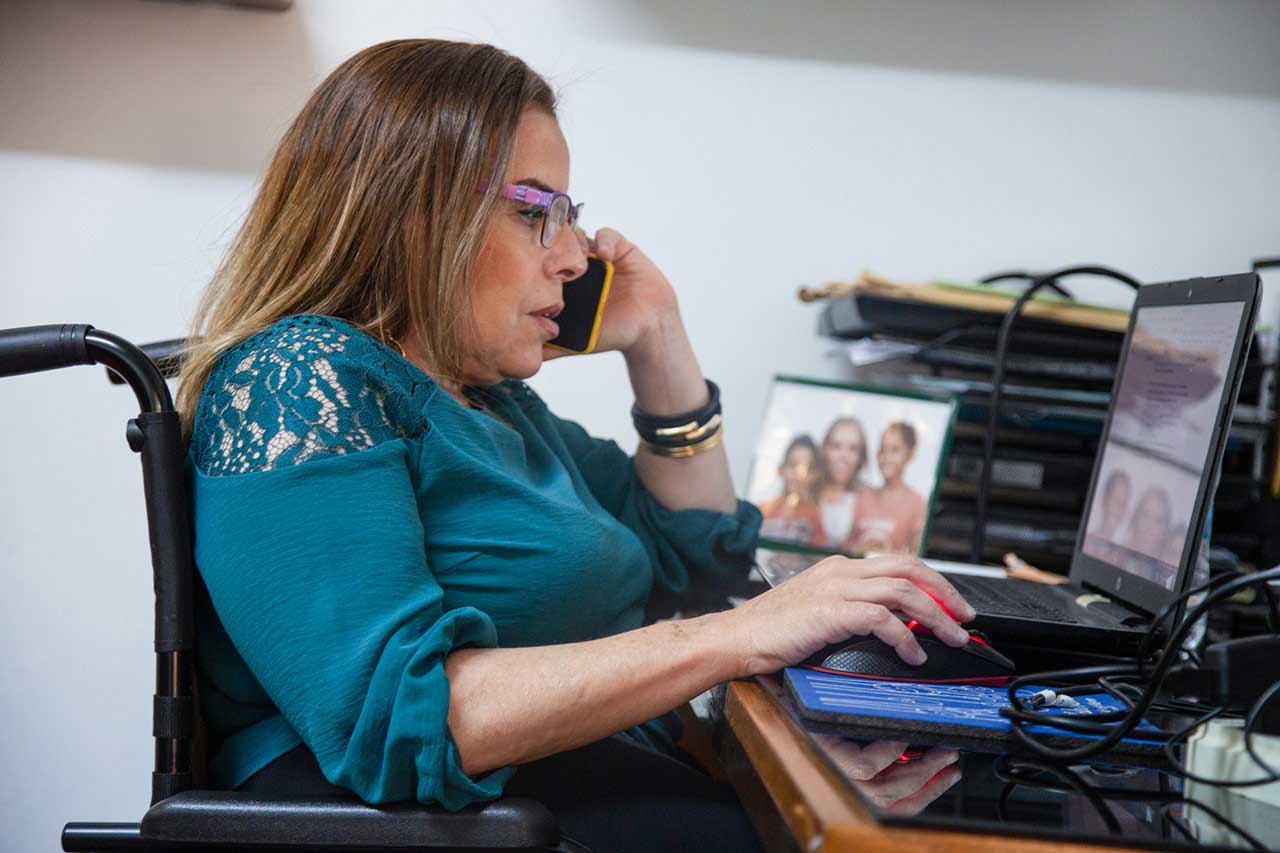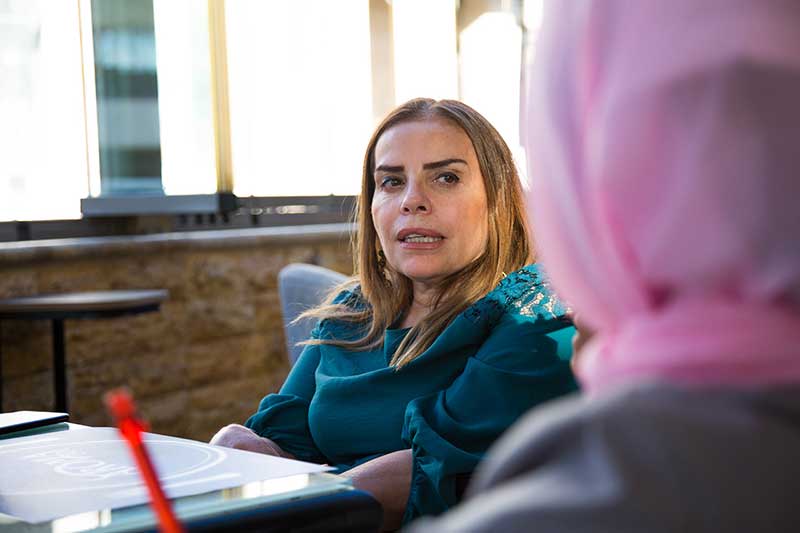
Inclusive education and a self-determined life for all
As a child, Asia Yaghi had to fight to get into a school. Today she is an adult, has a university degree and is the head of Jordan’s largest self-advocacy organisation for persons with disabilities. With “I am Human”, she campaigns for the right to inclusive education and for a self-determined life for all.
It is an everyday situation for Jordanian Asia Yaghi: On her way to work, she wants to quickly pick up a package. The night before, she ordered something from her favourite bakery. She waits patiently for the employee to carry the order to her car. Three women who are also waiting in front of the shop insult Asia.
She should get out of the car and get her things herself. But getting out of the car is not as easy for Asia as it is for others – with a walking disability it takes much longer, it is cumbersome and exhausting. Yet, the women waiting are impatient.

Asia drives her own car and is very independent. However, when she is sometimes dependent on help, reactions of people can vary – partly due to a lack of knowledge about disabilities. © GIZ / Dina Naser
“Many people don’t think at all about why someone is asking for help,” Asia says. “They only have their own perspective and reservations. And they don’t know anything about us persons with disabilities.”
Asia Yaghi would like to change that – and she wants to start with the education system.
A right to education
“Many people don’t want to accept that persons with disabilities also have a right to education,” she says. Her own father was trying in vain to find a school for his daughter for a long time. “When he finally managed to convince a headmistress, he had to commit to janitorial work at the school in return.” And sign that the school would not be liable if anything happened to her.
In the meantime, the government of Jordan has passed an equality law that aims to provide protection and support for persons with disabilities in all areas of life – especially in the education system. The 2017 law stipulates, for example, that within ten years all schools in the country will be accessible and that teaching staff will be trained to work inclusively.
But in the education budget for the following years, only 0.4 per cent of the budget was earmarked for the education of children with “special needs” – in separate facilities.

Asia Yaghi in her office. She is the founder of the “I am Human Society” and advocates for inclusive education on many levels. © GIZ / Dina Naser
“We need to show our diversity”
“Special needs” – this is a term that Asia does not want to accept, as it undermines what people without disabilities are automatically entitled to in Jordan. “Inclusive education is enshrined in the constitution of Jordan, as well as in the constitutions of other countries that guarantee respect for human rights,” she explains. Therefore, everyone has the same right to education without discrimination.
“Thus, people like me are not persons with special needs. We are people like everyone else. I only have a motor disability.” The addition of “motor disability” is very important to her. It refers to the fact that it is the environment that often makes it difficult for her to get around just like everybody else – and not her disability itself.
Asia knows that words mean a lot. That is why she is not only concerned with accessible buildings and the admission of students with disabilities. It is also about raising awareness and representation: “We exist. Why are we not mentioned in textbooks? Why doesn’t the teaching material show pictures of people using a cane? We must finally represent our diversity in our education system.”

Asia talking to a colleague. © GIZ / Dina Naser
Nothing about us without us – the I am Human Society
In order to realise the rights of persons with disabilities in Jordan, in the education system and beyond, Asia founded the “I am Human Society for Rights of People with Disabilities” with four other people in 2008. The organisation is the first of its kind in the country – and already has more than 4,500 members from all over Jordan.
It educates people about the rights of persons with disabilities and raises awareness of the issue through campaigns, projects and numerous initiatives. “Most people don’t know that there are laws to protect the rights of persons with disabilities. I want to change that,” Asia says with a confident smile.
The organisation also works in educational institutions. Workshops are held with students at the Faculty of Education at the University of Jordan. The topic: obstacles faced by persons with disabilities and ways to overcome them. The aim is to finally make the education system fairer and more inclusive.
Above all, Asia wants to drastically improve the lives of people like her. The I am Human Society takes a holistic approach that includes persons with disabilities, their whole family and the wider community. “Family is incredibly important. I was lucky. My parents accepted me for who I am. And they have imposed this attitude on our whole family. ” Asia laughs heartily. “That has strengthened me a lot inside.”
Persons with disabilities and their families receive free education and training from the organisation, which supports them in all relevant social and financial issues. What rights do I have as a person with disabilities? Who will support me if my child has a disability? The mobile outreach teams, made up of volunteers from all over Jordan, are already active in almost all parts of the country and also reach people in remote places.
However, there are still people who fundamentally reject persons with disabilities, people who ask why someone in a wheelchair is at a party or why a child with a visual impairment is in the same class as other children. Nevertheless: “Many things are already better today,” Asia says.
“For example, I can move around more easily with my wheelchair. Sometimes there are ramps, and more and more people accept me as I am.” These constant changes give Asia the strength to continue advocating for equal rights for persons with disabilities every day.